Mary Crilly: All I ever wanted my legacy to be is to stop the victim-blaming
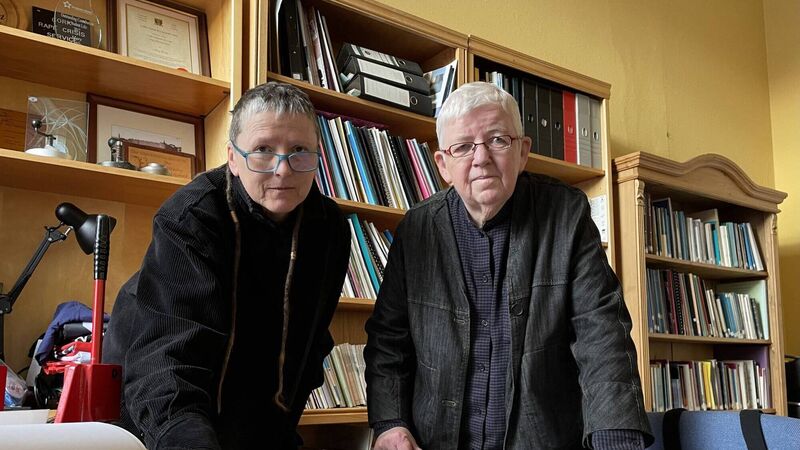
Dola Twomey and Mary Crilly of the Sexual Violence Centre Cork. Picture: Donal O'Keeffe.
“ALL I ever wanted my legacy to be is to stop the victim-blaming,” Mary Crilly tells The Echo in her office overlooking the river Lee. The Sexual Violence Centre Cork marks its 40th anniversary this year, and the city and society it serves has seen a lot of changes in those four decades.
In its earliest days as the Cork Rape Crisis Centre, when it was based over the Quay Co-Op, Mary says the centre was treated with the deepest levels of suspicion and resentment by many in the city, in the clergy, in City Hall, and in An Garda Síochána.
Last year, when the centre’s founder, Mary Crilly, was granted the freedom of Cork City, the then-taoiseach, Micheál Martin, praised Ms Crilly as “truly an outstanding person who has contributed so much to life in Cork, and indeed to our country”.
In that same ceremony, Deputy Lord Mayor Mary Rose Desmond recalled that Official Ireland was extremely hostile towards the centre, and that, at that time, the gardaí raided the Quay Co-Op.
Ms Crilly recalls that later, when the centre had moved to new premises over on MacCurtain St, her office was visited by a senior Garda, who told her bluntly she wasn’t welcome in Cork, ordering her to leave town. Needless to say, she didn’t listen.
Times have changed, she says, and these days a retired chief superintendent, Barry McPolin, is a member of the centre’s board. Even four decades ago, though, some gardaí were deeply sympathetic.
“Some guards on the street were very supportive of us even back then, the guards who were coming across rape,” Ms Crilly says. Asked about the civic reception in City Hall to mark the centre’s anniversary, she says it is really welcome.
“It’s great for the staff here, and great for the board, and great for the clients. It’s great to have the 40 years recognised, and for me, it is about all the people who worked here, all the people who are here right now, all the clients who have come in over the years, it is great to have it recognised, and it is great to have sexual violence kept in the conversation.
“It’s not something we always like to keep in the conversation, but unfortunately, it is something we have to keep in the conversation, so when City Hall and the Lord Mayor offered to do a civic reception we were privileged, we were really happy.”
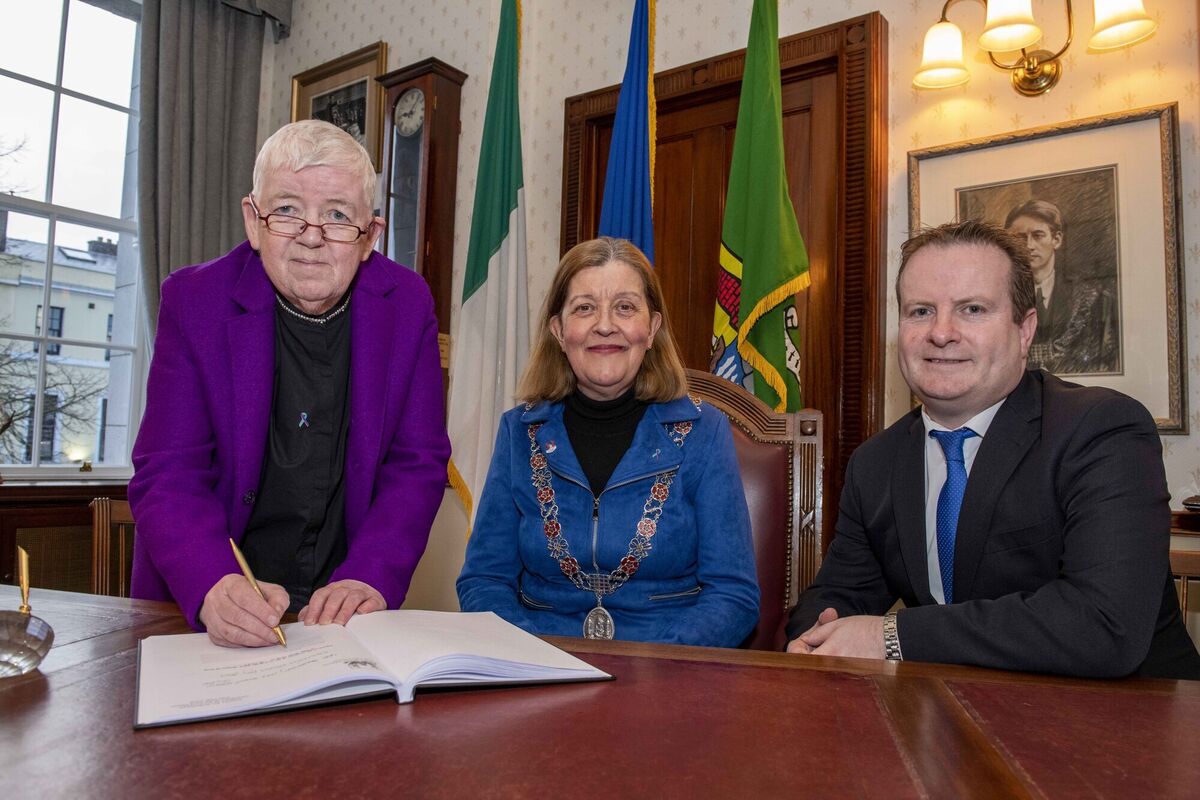
Looking back to 1983, Ms Crilly says much has changed in Ireland since then.
“I think it was a different time, where there was different things happening and where a lot things weren’t spoken about.
"Institutional abuse hadn’t come to light. There was very few reports of rape back then, there was only one other rape crisis centre, in Dublin, which started in 1979.
“The issue just wasn’t spoken about by people on the street. Individuals knew it was happening in their homes, they knew it was happening within schools, within sports clubs, they knew it was happening, but nothing was being done about it,” she says.
Ms Crilly says that while sexual violence and violence against women remains a truly appalling problem in Irish society, it is important to acknowledge how much public attitudes have changed, and to focus on what more can be done to address the issue.
“Before there wouldn’t have been anything like the vigils for Ashling Murphy or the other vigils. Before there wouldn’t have been anyone standing up in that way and being counted,” she says.
“What we’re coming across is that with younger clients coming in, they’re being believed at home. Before they wouldn’t have been believed that they were raped.
"I’m not saying they always get the support they want at home, especially when the perpetrator is going to be a friend of the family or someone they feel is a lovely boy, but they’ve been believed, which is a change.”
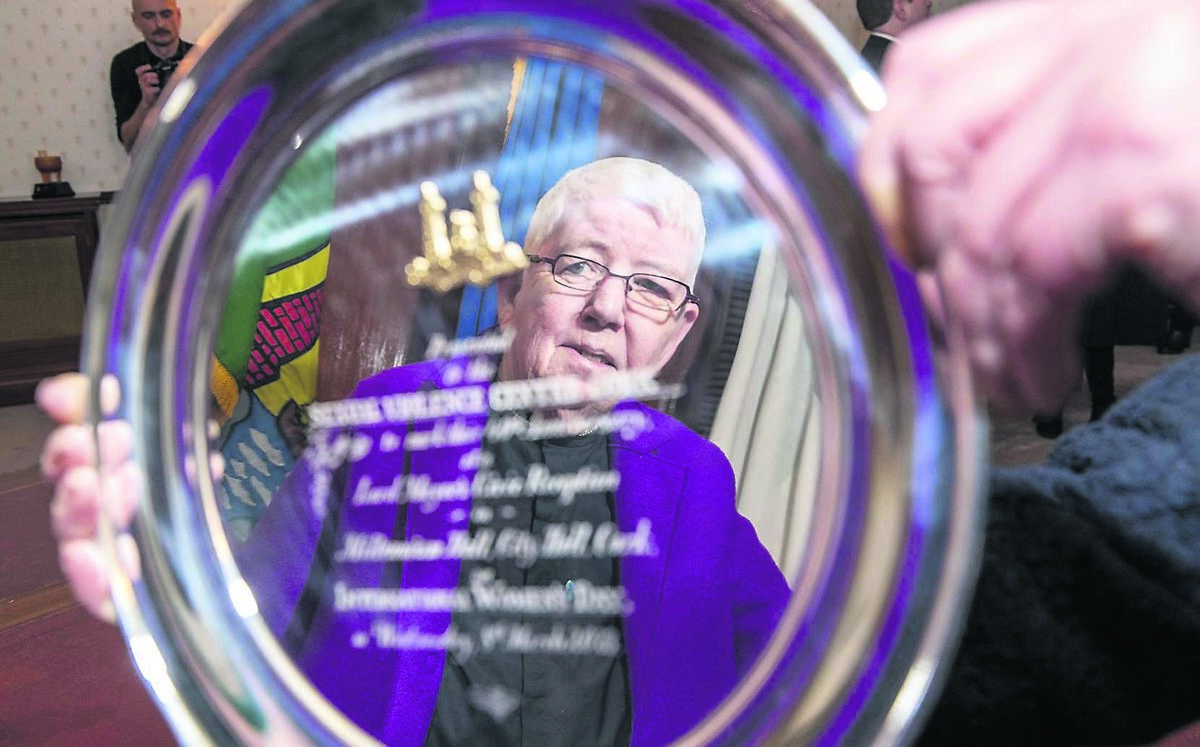
Ms Crilly says she tries to maintain a positive outlook for society, and that is something which informs her work in the Sexual Violence Centre. “I think the only way to make a change is if we all work together and collaborate, but if we go on about how awful it is, people can despair and just feel helpless. I think you can paralyse people by saying ‘Sure there’s nothing you can do because it’s all really bad anyway’.
“Whereas I would say there are things we can do, by believing the victim, by talking to them, but most of all by calling out the perpetrators, because the guys who rape or assault will tell their friends and brag about it, they’ll say ‘She was so out of it last night she can’t remember what I did’.
“They won’t say ‘I raped her’, but they will notch it down as if it’s no big deal, and unfortunately rape of a younger person is often talked about as if it is no big deal. You know, ‘Sure what about it, she doesn’t even remember’ or ‘She was only a slag’. We can really challenge that behaviour.”
Ms Crilly believes that some blinkered attitudes persist. “We have met so many young women who say ‘I have so many friends who’ve been spiked, who’ve been stalked, who’ve been raped’, and I meet so many mothers then who say ‘My daughter and her friends came across it, but my son never did’, or ‘My son knows nobody who’s raped somebody’.
“As long as we keep that divide going, as long as we’re not calling out the guys, or not watching out for them, nothing will change, because not only do the perpetrators groom the victim, they groom everybody else around them,” she adds.
“You’d have young girls coming in saying ‘He was like a brother to me all my life, I don’t know why he would do this to me’, and then you would have families saying ‘We know he did it, but you know what, Mary, I don’t think he realised what he was doing’. This might be a young fellow in his twenties, who bloody well does know what he’s doing.”
Since its foundation in 1983, the Sexual Violence Centre Cork has helped tens of thousands of victims of sexual violence, domestic violence, sex trafficking, female genital mutilation, and stalking.
With retirement, or at least a stepping-back, on the horizon, Ms Crilly remains passionate in her advocacy that we can all change public attitudes.
“All I ever wanted my legacy to be is to stop the victim-blaming, and unfortunately that’s still not stopping, but I hope that together we can all make some kind of dent on it,” she says.
- The Sexual Violence Centre Cork, 5 Camden Place, Cork. info@sexualviolence.ie. Freephone: 1800 496496.Text 087 1533393.
Read More
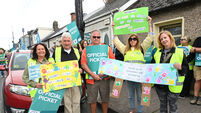


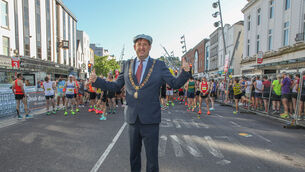



 App?
App?


